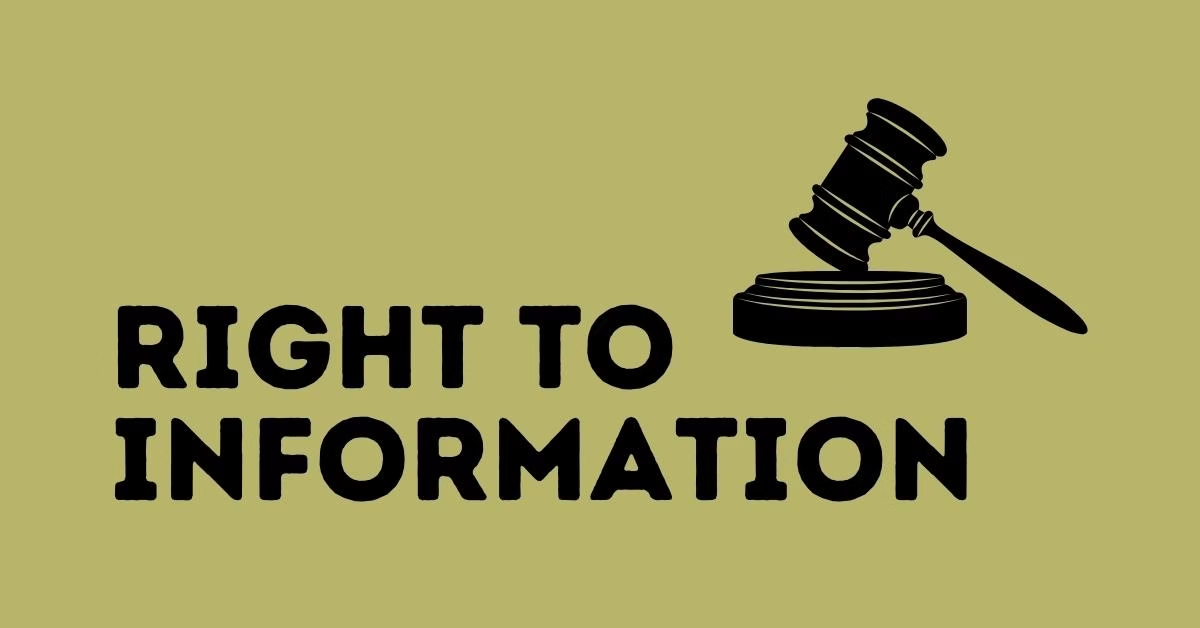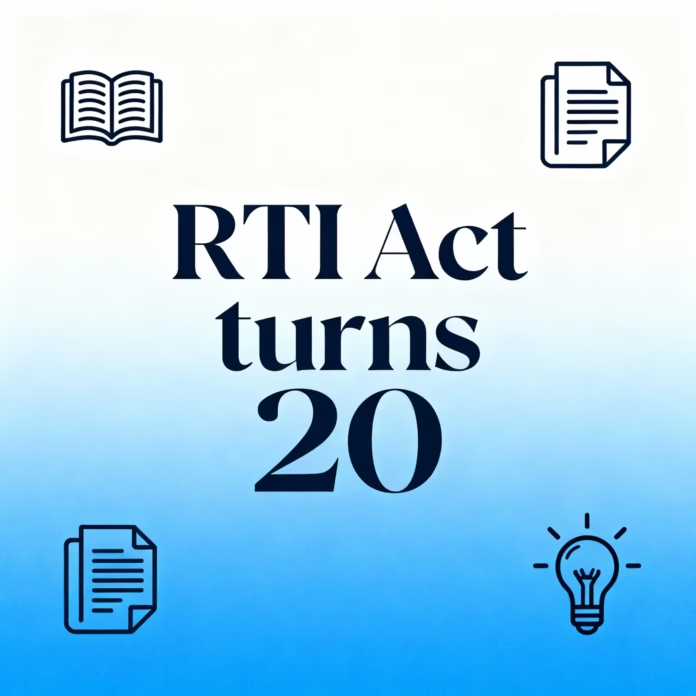RTI Act at 20: A Timeline of Transparency
Harsehajveer Singh / royalpatiala.in News/ October 12,2025
The Right To Information (RTI) Act completed 20 years on Sunday, having come into effect from October 12 ,2005.
The act was introduced by the then UPA government led by the then PM Dr. Manmohan Singh.
The act was enacted to enable citizens to freely access information held by public authorities and make governments more transparent .The act applies to all levels of government and also to all the bodies owned, controlled or substantially financed by the Central/State Government and non-Government organisations substantially financed (directly/indirectly) by the Central/State Government.
In Raj Narayan v/s Uttar Pradesh Government case, Supreme Court of India established the Right to information as a Fundamental Right under the Article 19 (1) of Indian Constitution.
The law replaced the Freedom of Information Act,2002 and also established the Central and State Information Commissions to oversee its implementation.
Key Provisions of the RTI Act,2005:
Central and State Information Commissions: to oversee its implementation and address appeals regarding non-disclosure of information.
Central Public Information Officers (PIO) or State PIO: In every public authority to provide information to persons requesting for the information under this Act.
Every citizen has the right to request information from a public authority.

How to file an RTI application?
- A request for information can be typed or handwritten in English/Hindi or any regional language to the PIO of the department concerned.
- The application can be submitted at PIO’s office via post or can also be filed online on rtionline.gov.in.
- The application fee of Rs. 10 must be paid via netbanking, UPI or postal order.
- Applicants can expect a response within 30 days.
- If no reply is furnished or if the applicant is dissatisfied with the response, a first appeal can be filed against the response to First Appellate Authority of the concerned department.
- If still dissatisfied, users can file a second appeal with the Central/ State Information Commissions (headed by Chief Information Commissioners).
Exemptions from Disclosure of Information under the Act:
- Section 8:Certain information is exempt from disclosure.
- Certain intelligence and security organisations specified in the Second Schedule which includes 27 organizations like Computer Emergency Response Team (CERT-In), Intelligence Bureau, RAW, Directorate of Enforcement, National Technical Research Organisation
Jurisdictions: Lower courts are barred from entertaining suits or applications. However, the writ jurisdiction of the Supreme Court and high courts under Articles 32 and 225 of the Constitution remains unaffected.
Current Scenario:
Globally around 60 lakh RTI applications are filed each year.
According to 2023-24 report by a citizens’ group Satark Nagrik Sangathan (SNS), 6 out of 29 Information Commissions were defunct for varying lengths of time in the last 14 months.
The Six information Commissions are:
1).Himachal Pradesh
2).Jharkhand
3).Tripura
4).Goa
5).Telangana
6).Madhya Pradesh
As of October 7, 2025 Three commissions (including Central Information Commission) are functioning without a head.
As of June 30,2025 , more than 4 lakh appeals and complaints filed before 29 Information Commissions are pending.
- Highest Backlog of Appeals and Complaints as of June 30,2025 ( State-wise) :
| Maharashtra | 95,340 |
| Karnatka | 47,825 |
| Tamil Nadu | 41,059 |
| Chhattisgarh | 34,147 |
Amendments to the RTI Act:
The first attempt to amend the RTI Act was made within a year of its enactment. In 2006, a Cabinet-level proposal sought to exclude file notings (i.e., internal comments, opinions, or recommendations by officials) from the Act’s scope. This proposal was dropped due to strong opposition from civil society.
However, two major amendments have been passed in the last five years:
In 2019, Parliament amended the law to give the Union government the power to set salaries and service conditions of Information Commissioners who head the RTI appeal bodies at both the Central and State levels.
In 2023, Parliament passed the Digital Personal Data Protection (DPDP) Act through which an amendment was brought to the RTI Act. The amendment allows PIOs to withhold sharing personal information without any exception, including the larger public interest.
The RTI Act, 2005 has been a pivotal tool for promoting transparency and empowering citizens over the past 20 years. However, rising backlogs, vacant posts, and recent amendments pose serious challenges to its effectiveness. To preserve its spirit, there is an urgent need for stronger implementation and a renewed commitment to accountability in governance.
Note: The views expressed by the writer are personal.













